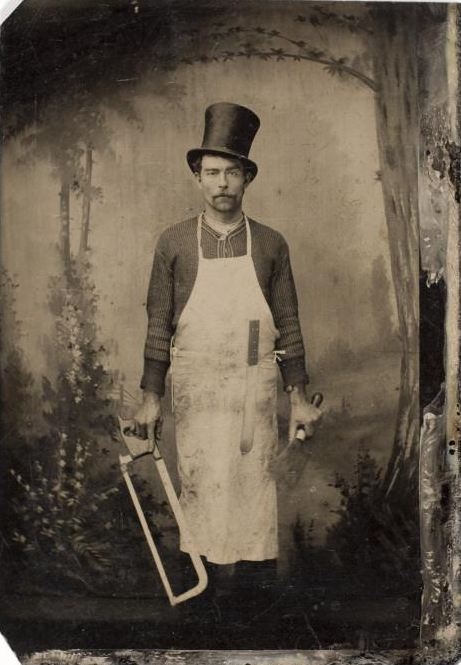Are there any butcher shops in major American cities that still have dead animals hanging in the window? That used to be de rigueur, but suffering and death are bad for business; it’s better to focus on the finished product and disappear all the unpleasantness. The opening of “The Case for Ethical Warning Labels on Meat,” from Thomas Rodham Wells at the Philosopher’s Beard:
“Like cigarettes, meat and dairy packaging should include no nonsense factual warnings about the negative consequences of one’s consumption choices. Just as with cigarettes, there is a strong case that exercising one’s sovereign right to free choice on personal matters requires that people be adequately informed about the significant negative implications of their choices by someone other than the manufacturer that wants them to buy the product. In this case the significant consequences relate to living up to one’s ethical values rather than safe-guarding one’s prudential interests in long-term health. But the principle is the same.
Ethical warning labels would inform consumers of the physical and mental suffering involved in producing the animal products they are considering buying. I envisage labels like this:
This chicken’s beak was cut off, causing it intense pain until its death
and
This cow’s babies were taken away and killed to keep it producing milk.
Servers of cooked animal products, from lowly hot-dog stands to the fanciest restaurants, would also have to include these ethical warnings prominently on their menus.”
Tags: Thomas Rodham Wells

